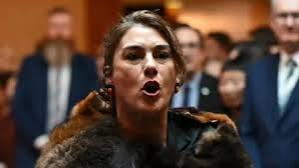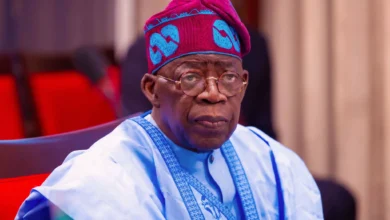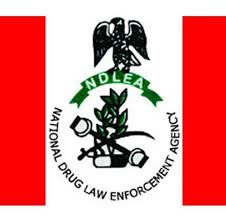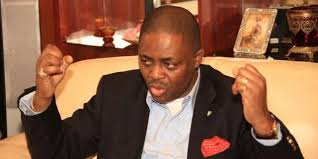Solving the Mystery of Henry Kissinger’s Reputation
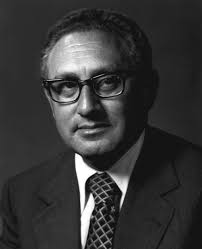
The former secretary of state is a genius—just not at what you might think
By Stephen M. Walt
Former U.S. Secretary of State Henry Kissinger has celebrated his 100th birthday several times over the past month, including at private events at the Economic Club of New York and the New York Public Library attended by dozens of A-list VIPs. The spectacle is eloquent evidence of Kissinger’s unique status. Few equivalent statesmen have received quite the same treatment while they were alive—not diplomats Dean Acheson, George Kennan, and George Shultz, nor even some former presidents.
Whatever one thinks of him, Kissinger has led a remarkable life. He is a refugee from Nazi Germany who eventually rose to the pinnacle of power in the United States, and who has remained a major influence on U.S. foreign policy for nearly seven decades. After a century on the planet, his admirers now hail him as the greatest strategic thinker the United States has ever produced. His name adorns fellowships at the Council on Foreign Relations and the Library of Congress and endowed chairs and research centers at several universities, not to mention his eponymous consulting firm. I cannot think of anyone who still commands the same level of public attention in their 101st year.
Yet there is a conundrum at the heart of Kissinger’s extraordinary life. Although he is now routinely hailed as a foreign-policy thinker of unique depth, wisdom, and insight, his long career is not quite as impressive as his admirers seem to think. He is undeniably a man of formidable intelligence and exceptional achievement—something even his harshest critics would concede—but the question is whether the reputation he has earned after a century is fully warranted.
This is the “Kissinger conundrum”: Given his overall track record, why is Kissinger now regarded with a sense of awe, and treated as if his grasp of world affairs far exceeds everyone else’s?
To understand this puzzle, it is useful to divide Kissinger’s professional career into three sections. The first phase is his scholarly career at Harvard, where he taught from 1954 until 1969. The second phase is his service in government, first as then-U.S. President Richard Nixon’s special assistant for national security affairs and subsequently as secretary of state and national security advisor for Nixon and Nixon’s successor, Gerald Ford. The third phase—by far the longest—is his career as an author, pundit, and sage, much of it conducted as the head of Kissinger Associates, the consulting firm he founded after leaving government.
During the first phase—as an academic at Harvard—Kissinger published several books and many articles and began his long association with Nelson Rockefeller and the Council on Foreign Relations. Although several of his books received widespread attention, ultimately his contributions to scholarship in this period were not significant. None of his early works deserves the label of a classic, and few are widely read or discussed by scholars today. The writings of realist scholars such as Hans Morgenthau and Kenneth Waltz still cast a long shadow over the scholarly study of international relations, but Kissinger’s scholarly works (including his first major book, A World Restored) do not. Kissinger also wrote a lot about nuclear weapons (including the best-selling Nuclear Weapons and Foreign Policy in 1957), but the works of Glenn Snyder, Bernard Brodie, Albert Wohlstetter, and Thomas Schelling had a far greater impact on the evolution of nuclear strategy than Kissinger’s did. His later book The Necessity for Choice (1961) was not well received, and even a biographer as sympathetic as Niall Ferguson concedes that a later book on NATO—The Troubled Partnership (1965)—was hastily written and soon out of date.
To be sure, Kissinger might have had a greater impact on the world of scholarship had he chosen to focus his energies there. We now know that he intended to write a trilogy on world order that would continue the story he had begun in A World Restored, which examined the rebuilding of European order at the Congress of Vienna. The two successor volumes would have dealt first with the Bismarckian order of the late 19th century and then with the breakdown of that system in World War I. Kissinger was increasingly engaged by real-world policy issues, however, and the trilogy was never completed. And it was these activities—including a deep dive into U.S. policy in Vietnam—that eventually led him into government in 1968. But the fact remains: Judged purely as a scholar, Kissinger is not a member of the pantheon.
Kissinger’s record as national security advisor and secretary of state is and will always be controversial. There are some noteworthy achievements, including the opening to China, the negotiation of important arms control agreements with the Soviet Union, and to some observers, his handling of recurring Arab-Israeli conflicts. But these achievements must be balanced against his support for the war in Vietnam and his direct role in prolonging it—despite his awareness that the war could not be won. Nixon and Kissinger also chose to expand the war into Cambodia, unwittingly opening the door to the genocidal rule of the Khmer Rouge. Kissinger’s support for August Pinochet’s military coup in Chile and his handling of the Indo-Pakistani war of 1971 merit harsh assessments as well.
Reasonable people can disagree about the weight to attach to these (and many other) incidents. My own assessment is more favorable than some observers, but it is hard to argue that Kissinger’s achievements as a statesman far exceed those of Acheson (51st secretary of state), Shultz (60th secretary of state), or perhaps even James Baker (61st secretary of state). To say this is not to denigrate Kissinger’s accomplishments; it is merely to acknowledge that his actions in office do not put him in a class by himself.
Which brings us to phase three: Kissinger’s long career providing strategic advice to corporations, governments, and the public at large, through a dizzying array of activities, a pile of weighty books, newspaper columns, and other forms of outreach. How does his track record stack up in his long post-government career?
Not badly, but not as well as you might think. For starters, Kissinger has published a lot of books since leaving government, but apart from his three volumes of memoirs (White House Years, Years of Upheaval, Years of Renewal), none of them are pathbreaking or especially significant contributions to scholarship. The most ambitious of his post-government tomes—Diplomacy (1995) and World Order (2014) are lengthy and erudite ruminations on their respective topics, but neither offers a novel theoretical vision or provocative, new historical interpretation. By contrast, Kissinger’s memoirs are to my mind a significant achievement: the best personal account ever written by a senior U.S. statesman. Only Acheson’s Present at the Creation comes close. Like all memoirs, they mount a vigorous defense of what their author did while in office and must therefore be read with a skeptical eye. Even so, they give readers an up-close-and-personal account of what it is like to be the chief diplomat and strategist for the most powerful country in the world, constantly juggling conflicting pressures and priorities in real time and amid enormous uncertainty. They are also engagingly written, filled with deft character sketches and a powerful sense of drama.
U.S. Secretary of State Henry Kissinger appears before the Senate Appropriations Committee in Washington on April 15, 1975, to urge approval of President Gerald Ford’s request for military and humanitarian aid to South Vietnam.
What about his other activities? As Matt Duss recently noted, Kissinger largely invented—and certainly perfected—the art of transmuting government service into a lucrative post-government career. Kissinger Associates became the model for a cottage industry of firms (the Cohen Group; Albright Stonebridge Group; Rice, Hadley, Gates & Manuel; WestExec Advisors, etc.) in which former officials lend their names, insights, and connections to various (typically unidentified) clients. The days where a public servant such as George Marshall would decline lucrative offers to cash in on his career because he thought it improper to profit from public service (and the sacrifices of others) are long gone, and Kissinger did as much as anyone to erode that ethos. The potential for conflicts of interest is obvious, especially when these former officials remain active in public discussions of foreign policy and in some cases return to government again. The problem is that it is impossible to know whether their public stances were intended to bolster (or at least protect) their private incomes.
Moreover, Kissinger got some of the biggest strategic questions we have faced since he left office badly wrong. He was an early supporter of NATO enlargement, for example, a decision that other observers correctly foresaw would produce not enduring peace in Europe but to a direct clash with Russia. Kissinger also supported the 2003 invasion of Iraq—surely one of the biggest strategic blunders in U.S. history—and opposed the 2015 nuclear deal with Iran. And he failed to foresee that helping China rise through a policy of engagement would hasten the emergence of a powerful peer competitor—precisely the sort of strategic threat that would have alarmed him during his years in office. That blind spot may help explain why his 2011 book On China reaches decidedly ambivalent conclusions.
Sign up for Editors’ PicksA curated selection of FP’s must-read stories.
SIGN UP
This is not to say that Kissinger has been wrong about everything. Analyzing contemporary events is difficult and nobody gets everything right. My point is simply that is hard to understand why so many people now hail him as the United States’ greatest strategist when his track record as a pundit is not obviously better than other people who routinely opine on global affairs.
Hence the puzzle: If we disregard the hype, Kissinger was a productive, prominent, but ultimately not that influential academic; a policymaker with both real successes and troubling failures; and an analyst of contemporary policy issues whose track record does not set him apart from others. So what explains the towering reputation he enjoys today?
Part of the answer, of course, is sheer longevity. Had Kissinger departed this life in his late 70s or even his mid 80s, his passing would have garnered plenty of attention and his place in the history of U.S. foreign policy would have been secure. But he would probably not have achieved the iconic status he now enjoys. Being the last person standing means that most of your chief critics and rivals are gone, allows the passage of time to blur the memory of past sins, and gives acolytes more time to burnish your reputation.
Making it all the way to 100 undoubtedly helped, but answering the puzzle requires a bit more than that.
I think the real reason is simple. No one has ever—EVER—worked harder or longer to gain and retain influence and prestige than Kissinger. I’ve known a fair number of incredibly driven, ambitious people in my time, and I’ve read about plenty of others. None of them come close. Even a casual reading of the many biographies of Kissinger (both the fawning and the hostile) reveal a man whose ambition is off the charts, who has remarkable focus and no serious hobbies, and who was perhaps the greatest networker the modern world has ever seen. He never burnt a bridge to anyone who might be helpful to him, never took a position that was clearly outside the acceptable consensus, never missed an opportunity to forge a new connection, never forgot a slight, and never concluded he had done enough. To put it plainly, Kissinger outworked, out-charmed, out-maneuvered, and outdid everyone else. Most remarkable of all, he still hasn’t stopped.
Kissinger also understood that influence can be self-reinforcing. If you are prominent enough, others will conclude that they will benefit more by being supportive and accommodating than by being critical. Going after Kissinger might be perfectly acceptable if you were a journalist or a college professor with no wider ambitions, but it wasn’t a smart strategy if you wanted to make it big inside the foreign-policy establishment. He had too many friends and connections there already. The larger he loomed, the more ambitious policy wonks would choose to seek his favor rather than question his wisdom.
Ambition of this magnitude is discomfiting, even a little scary, but there’s also something to admire about it. And not everyone with vast ambition can pull it off. But let’s not take the accolades Kissinger is now receiving at face value or lose sight of the moments when his judgment failed him. He may not be mortal, but he is hardly infallible.
Stephen M. Walt is a columnist at Foreign Policy and the Robert and Renée Belfer professor of international relations at Harvard University.

